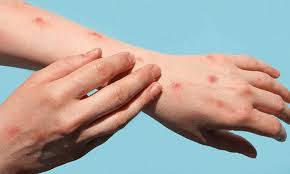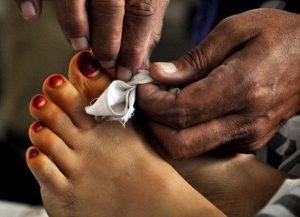Just a day after an alert was issued to curb the potential spread of diseases through international travelers, Pakistan reported its first case of monkeypox for the year on Thursday. The case was identified in a resident of Khyber Pakhtunkhwa (KP) who recently returned from Saudi Arabia.
Federal health ministry officials revealed that the affected individual is from Dir but currently lives in Mardan. He was diagnosed with Mpox after his return from Saudi Arabia on August 3.
In response, the health ministry has collected additional samples from those who had been in contact with the infected person. The Border Health Services have been instructed to implement stringent monitoring at all entry points.
To further combat the disease, a critical meeting was convened at the Health Ministry under the leadership of the Director General of Health. During this session, advisories and guidelines for handling Mpox were issued.
Provinces have been directed to appoint focal persons to monitor and report any developments related to the disease.
It is important to note that the World Health Organization (WHO) declared the recent monkeypox outbreak a global emergency just a day prior.
Over the past year, Pakistan has confirmed nine cases of Mpox, all linked to travelers returning from the Middle East and other countries. Unfortunately, one patient, who was co-infected with HIV and Mpox, passed away in Islamabad.
A special session of the NCOC on Mpox highlighted that around 15 African countries are currently reporting Mpox cases, totaling 2,030 confirmed cases. Notably, four countries—Burundi, Kenya, Rwanda, and Uganda—previously unaffected by the virus have reported cases since mid-July 2024.
According to the National Institutes of Health (NIH), from January 1, 2022, to June 30, 2024, the WHO reported a cumulative total of 99,176 laboratory-confirmed Mpox cases, including 208 deaths, across 162 countries in all six WHO regions.
In June 2024 alone, 934 new cases were reported, with the majority from the African Region (61%), followed by the Americas (19%) and Europe (11%).
The WHO has observed a decline in reporting rates, suggesting that recent trends in Mpox cases should be interpreted with caution. The WHO continues to encourage countries to ensure that Mpox is reported as a notifiable disease, including instances where no cases have been detected (known as ‘zero-reporting’).














